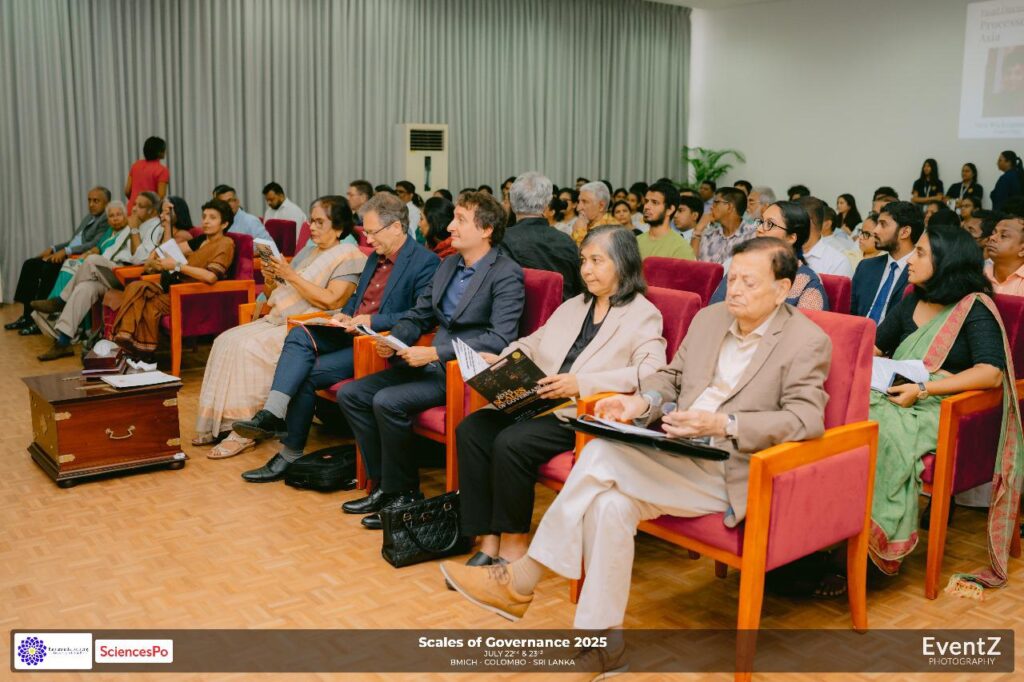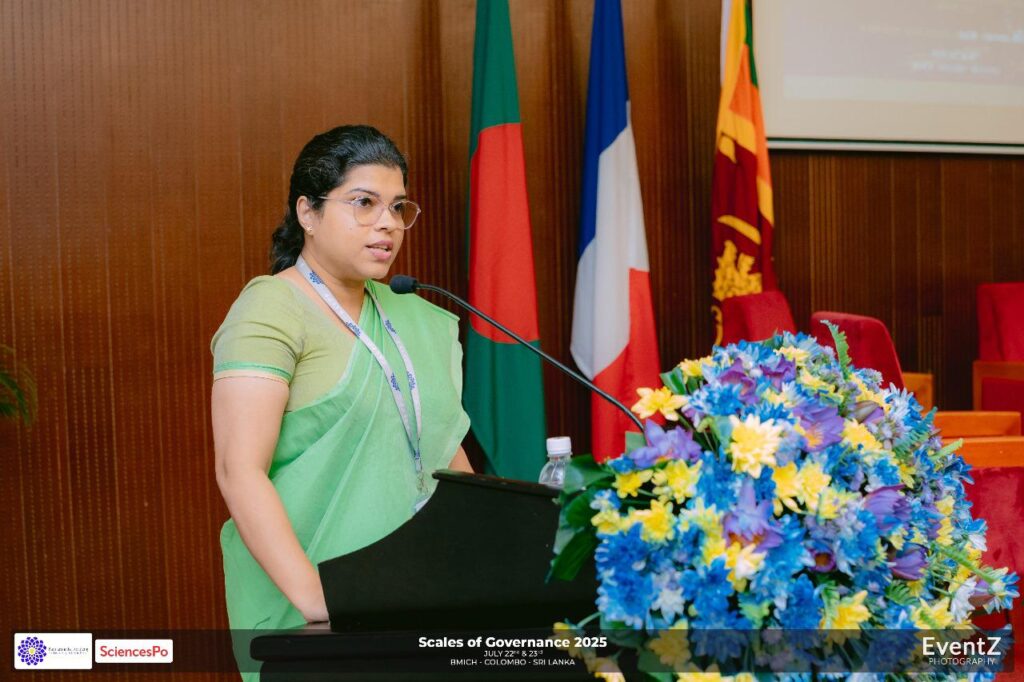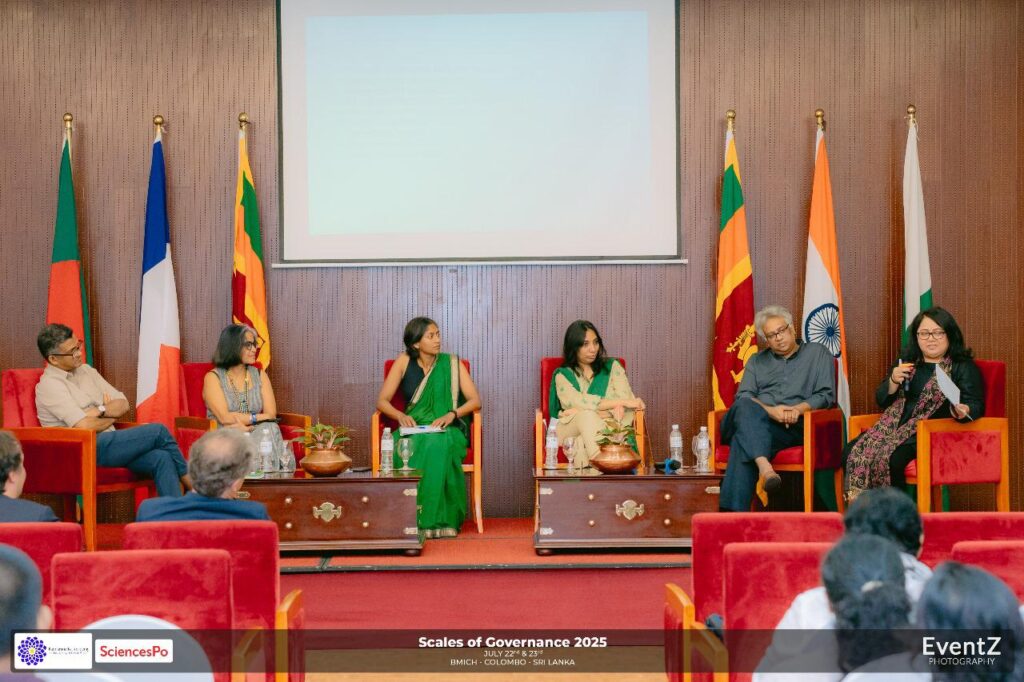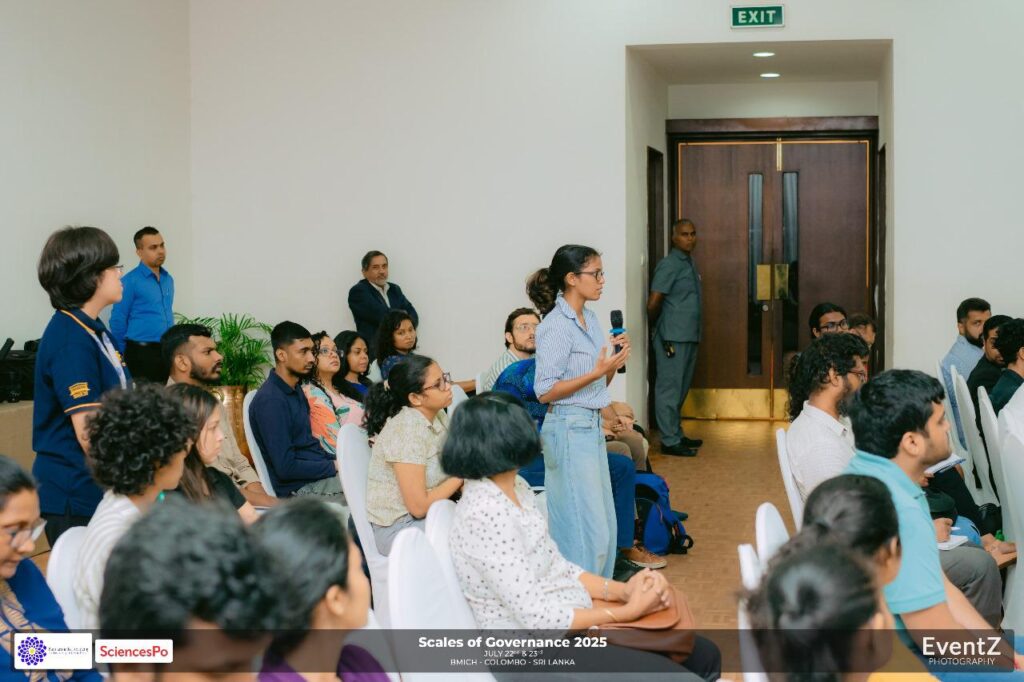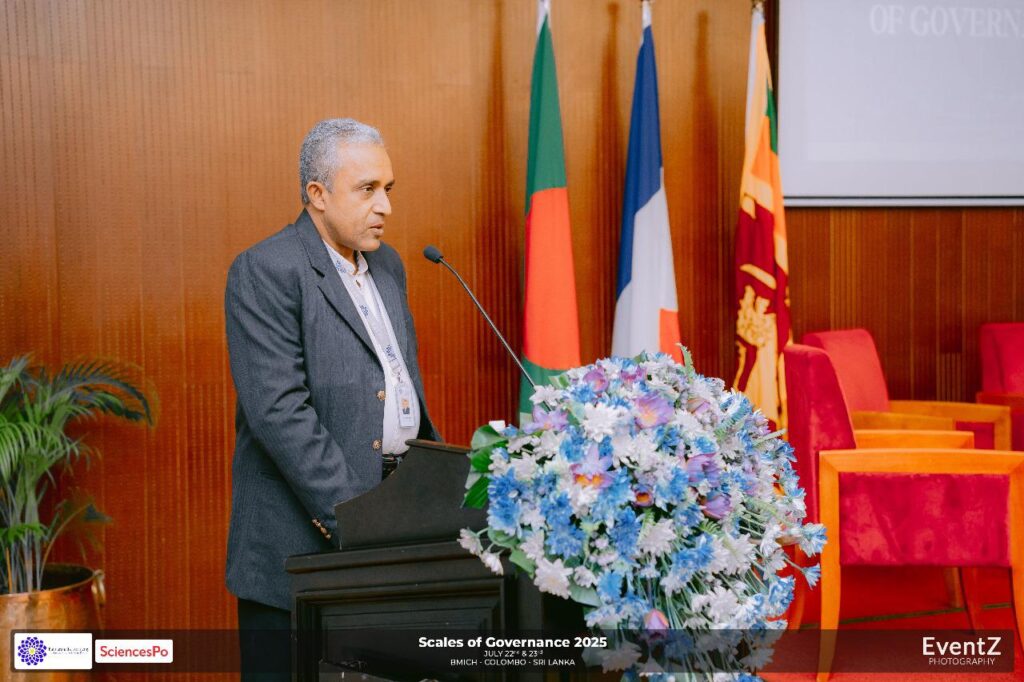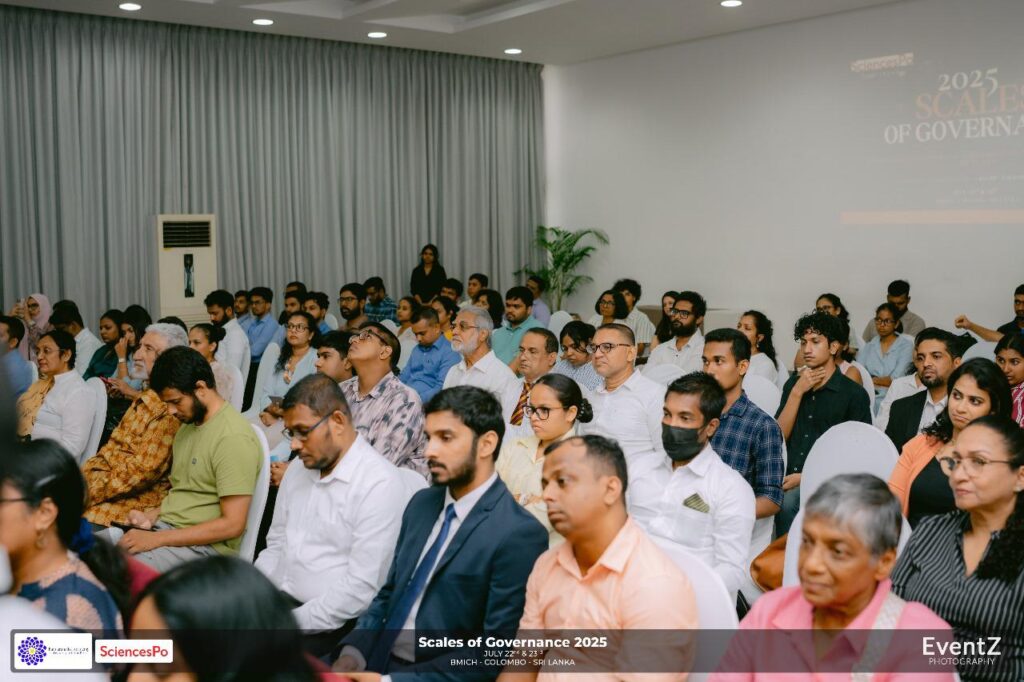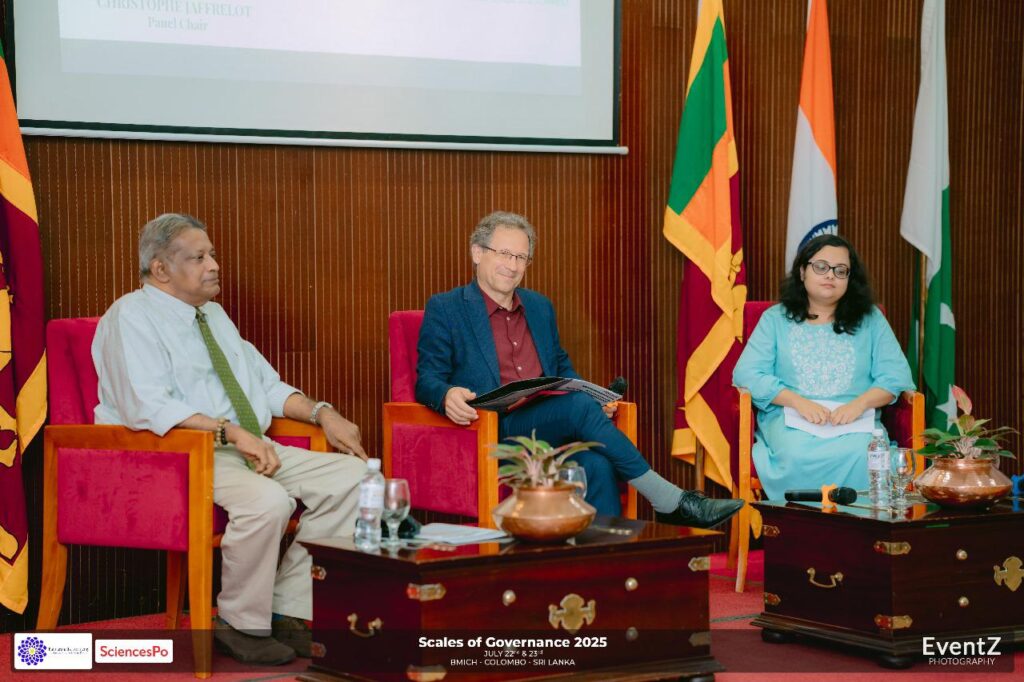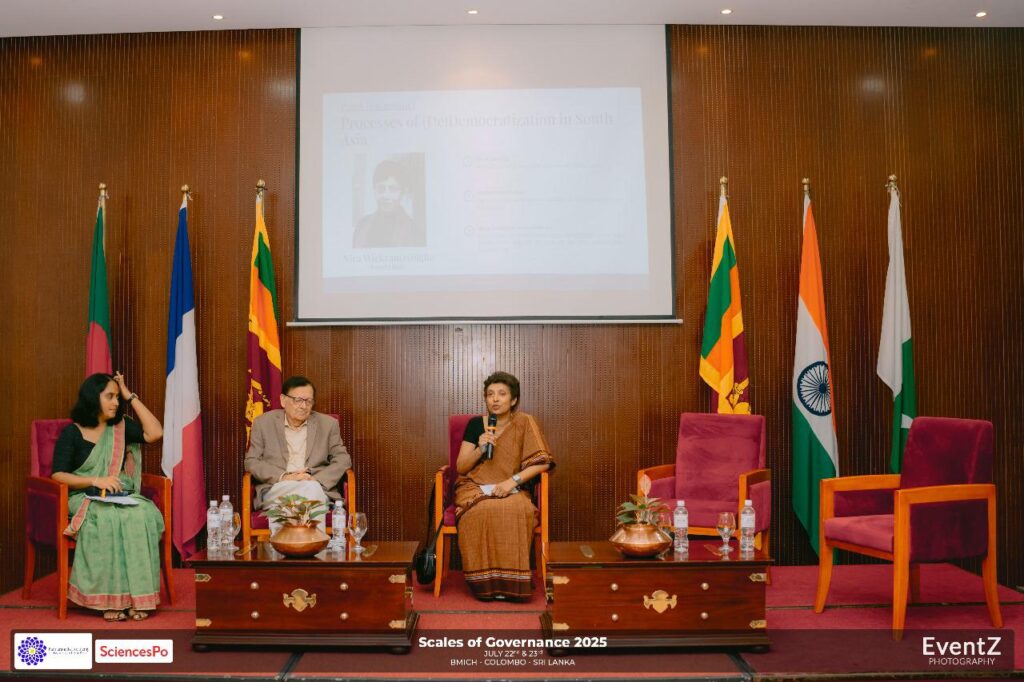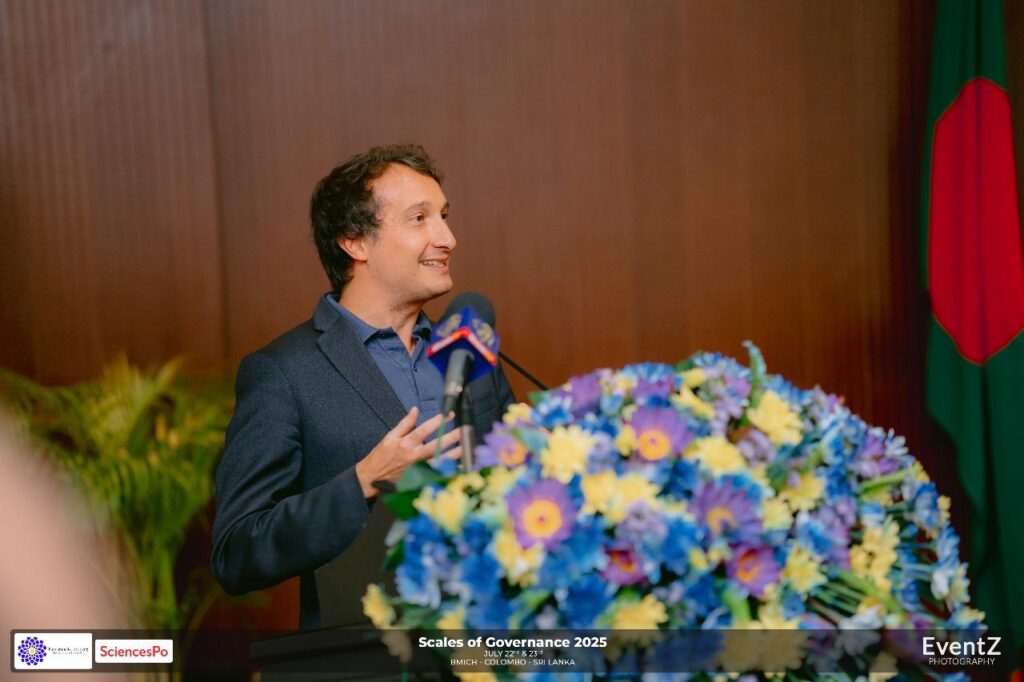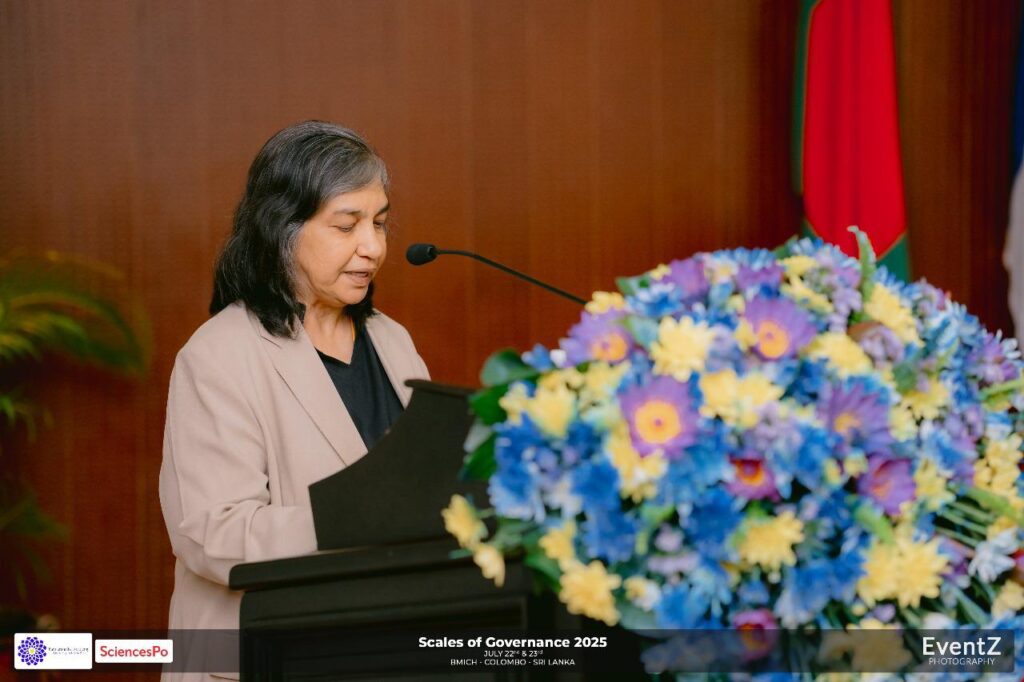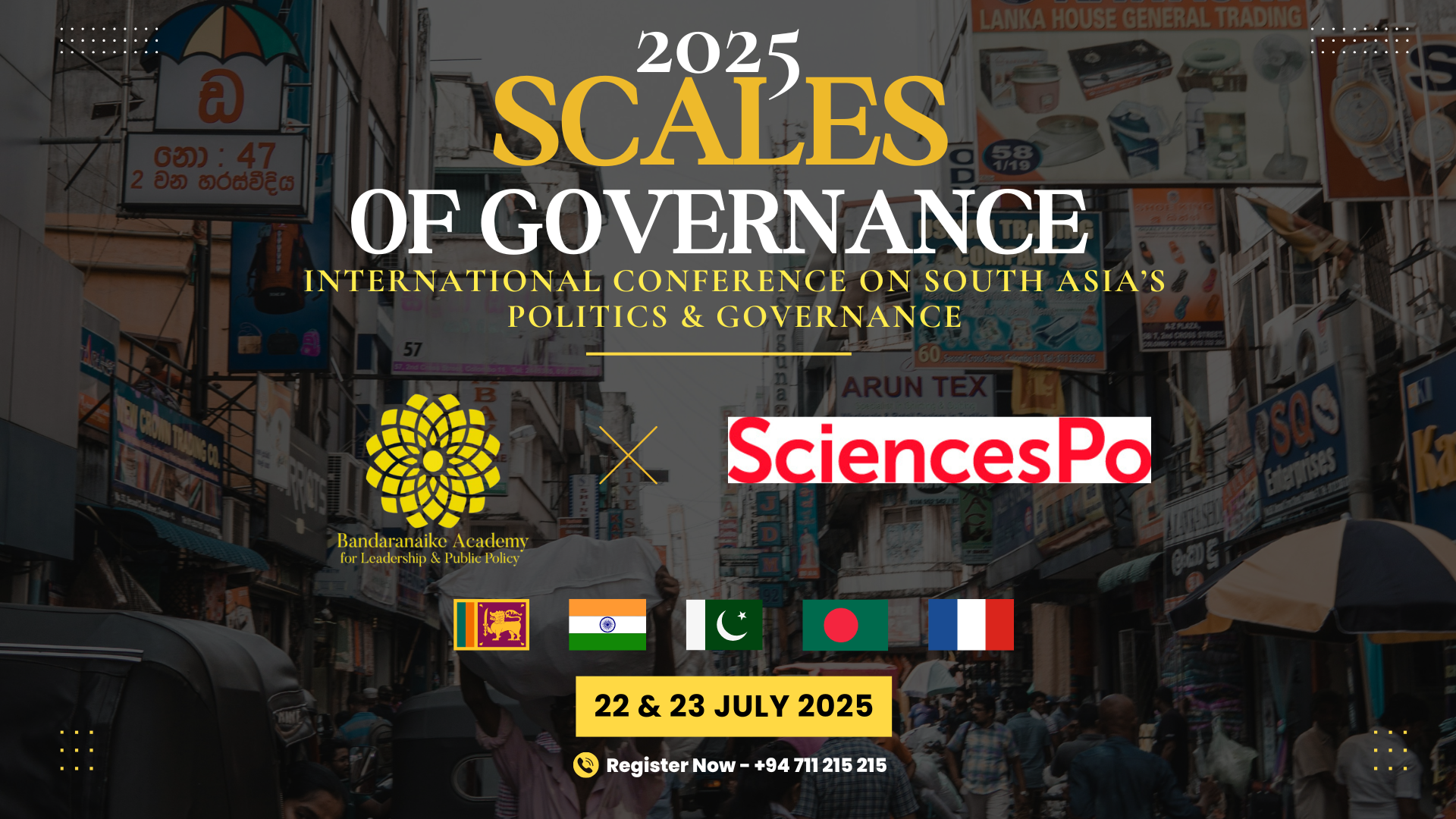
Scales of Governance – BALPP & Sciences Po International Conference 2025
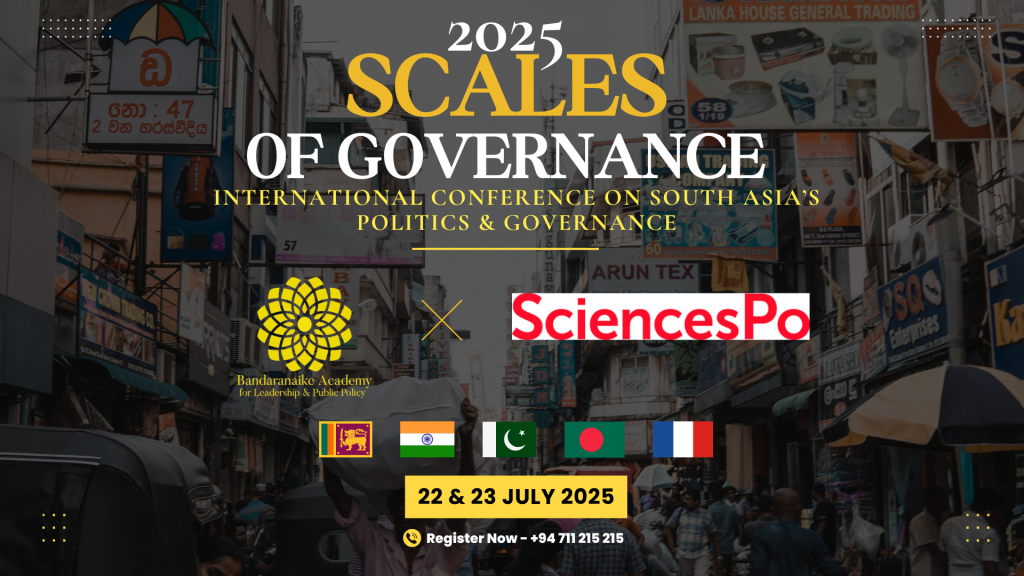
Sciences Po – BALPP International Conference 2025
Leadership & Governance Challenges in South Asia
July 22–23, 2025 | BMICH, Colombo, Sri Lanka | Entrance Free
Hosted by the Bandaranaike Academy for Leadership & Public Policy (BALPP) in partnership with Sciences Po
Conference Overview
At a time when South Asia faces deepening political volatility, institutional fragmentation, and economic uncertainty, the 2025 Sciences Po–BALPP Conference on Leadership and Governance Challenges in South Asia offered a timely intervention. Held at the Bandaranaike Memorial International Conference Hall (BMICH) in Colombo on July 22 and 23, this landmark event brought together leading scholars, analysts, and practitioners from across the region to critically examine the shifting landscape of governance, democracy, and decentralization.
The conference was framed by the recognition that governance in South Asia today cannot be meaningfully discussed without engaging with the broader crises of legitimacy, populism, and uneven development. With each participating country undergoing its own set of constitutional, political, and administrative recalibrations, the conference served as a rare platform to exchange perspectives, draw comparisons, and identify common threads in the region’s governance dilemmas.
Day One of the conference featured two substantive panels. The first, Processes of (De)Democratization in South Asia, explored the rise and retreat of democratic institutions across the region. Chaired by Professor Nira Wickramasinghe (Leiden University), the panel offered critical reflections on youth mobilization, authoritarian resilience, and party system transformations in Sri Lanka, Pakistan, and Bangladesh. These presentations illuminated how democratic backsliding is neither linear nor uniform, but shaped by deeply embedded institutional histories and socio-political cleavages.
The second panel, Federalism and Variants of Decentralization, chaired by Professor Christophe Jaffrelot (Sciences Po/CNRS), tackled the structural tensions between central governments and subnational units. Case studies from India, Pakistan, and Sri Lanka illustrated how federal arrangements are being tested by both populist centralization and demands for regional autonomy. In Sri Lanka’s case, the debate over devolution remains fraught with unresolved questions around ethnic reconciliation, minority rights, and the limits of provincial governance.
On Day Two, the focus shifted to local governance, with the third panel, Strengthening Urban and Local Bodies, examining how cities and municipalities are coping with mounting responsibilities amidst fiscal and institutional constraints. Researchers and practitioners from India, Bangladesh, and Sri Lanka shared experiences from the ground—ranging from service delivery innovations to governance bottlenecks in post-crisis urban environments. These discussions emphasized that urban governance is no longer a technocratic domain but a frontline arena of political contestation and policy experimentation.
Across both days, the conference emphasized not only academic analysis but also policy relevance. The panels interrogated how political will, institutional design, and civic engagement intersect to shape governance outcomes. Among the recurring concerns were the risks of populist consolidation, the challenges of intergovernmental coordination, and the fragility of democratic norms in the absence of citizen vigilance.
The conference closed with reflections from members of the organizing institutions and participants, reaffirming the need for more collaborative, transnational forums that place South Asian governance questions in sustained conversation. As participants departed, there was a clear sense that the conversations initiated at BMICH would continue to echo in policy circles, academic research, and civic activism well beyond the two-day event.
Featured in the Financial Times –
https://www.ft.lk/front-page/Public-participation-in-governance-keeps-corruption-at-bay-and-spurs-economic-growth-Former-President-Kumaratunga/44-779414
Video made of the event –
https://vt.tiktok.com/ZSSSYo5ND/
Day 1: Tuesday, July 22, 2025
Opening Session
Remarks by:
Tara de Mel – Executive Director, BALPP
H.E. Chandrika Bandaranaike Kumaratunga – Former President of Sri Lanka & Chairperson, BALPP
Alexandre Mariani – Co-Director, Sciences Po South Asia Program
Panel 1: Processes of (De)Democratization in South Asia
Chair: Prof. Nira Wickramasinghe, Leiden University
Rajni Gamage (Sri Lanka)
Mohammad Waseem (Pakistan):
Mirza Hassan & Tariq Omar Ali (Bangladesh):
Panel 2: Federalism and Variants of Decentralization
Chair: Prof. Christophe Jaffrelot, Sciences Po/CNRS
Paikiasothy Saravanamuttu (Sri Lanka)
Asma Faiz (Pakistan)
Proma Raychaudhuri (India)
Day 2: Wednesday, July 23, 2025
Panel 3: Strengthening Urban and Local Bodies
Chair: Dr. Nadeera Rajapakse, Paris 1 Panthéon-Sorbonne
Mohamed Faslan (Sri Lanka)
Lalitha Kamath & Amita Bhide (India)
Salina Aziz & Mirza Hassan (Bangladesh)
Closing Session
Samitha Hettige – Head of Academic Affairs, BALPP
Aeshani Pereira – Chief Operating Officer, BALPP
Featured Topics & Abstract Highlights
The rise of youth-led political formations in Bangladesh and their transformation into new civil society and political forces.
The contradictions of populist politics in Sri Lanka’s local government structures post-2024 elections.
A deep dive into Indian municipal governance through the lens of crisis, resilience, and decentralization.
A fresh reading of Pakistan’s establishmentarian democracy and the mechanics of civil-military balance.
The complicated legacy and limits of federalism in Sri Lanka amid renewed calls for devolution and minority rights.







